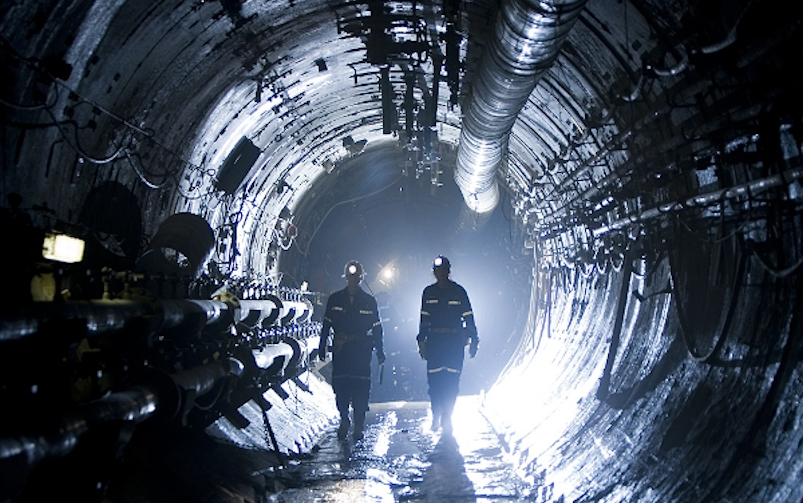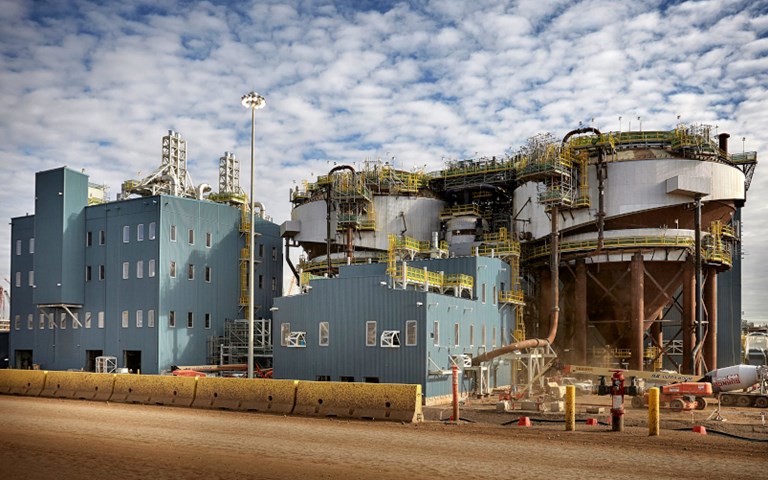Suncor will be reducing its Fort Hills operation to a "one train operation." Courtesy of Suncor Energy.
In response to the major decline in crude oil prices and the continuing uncertainty around the economic impact of the COVID-19 pandemic, Suncor Energy released a revised 2020 corporate guidance on Mar. 23, reducing its capital spending and production guidance significantly.
“The simultaneous supply and demand shocks are having a significant impact on the global oil industry,” Suncor president and CEO Mark Little said in the press release. “We are adjusting our spending and operational plans to be prepared in the event the current business environment persists for an extended period of time. Our business model and financial strategy are designed to withstand volatile environments.”
The company’s original capital spending program for 2020 was set at between $5.4 billion and $6 billion, with $1.3 billion expected to be spent by the end of the first quarter. The revised capital program has a range of $3.9 billion to $4.5 billion, a 26 per cent decrease from the original’s midpoint. According to Suncor, up to $2.7 billion of that capital will be spent on asset sustainment and maintenance; up to $750 million will be spent on exploration and production step out developments and approximately $1 billion will be spent on cost reduction projects.
According to the company, these cuts were made “in order to sustain the financial strength of the business within the current economic environment.” This has resulted in developments being put on hold, such as the cogeneration facility at Base Plant. Certain company initiatives, such as pipelines, deployment of autonomous vehicles at its Fort Hills operation and investments in technology for supply and trading will be funded and proceed on schedule.
Related: Teck Resources announces reduced operations at its Antamina mine as the Peruvian government declares a national state of emergency in response to the COVID-19 pandemic
Alongside the depressed oil prices, the quarantine and social distancing measures being put in place by the Canadian government have severely impacted operations across the country. For Suncor, limited personnel on site and the falling demand for jet fuel and gasoline has resulted in the need for reduced production as well. Total production outlook for the year has dropped from between 800,000 and 840,000 barrels of oil per day to between 740,000 and 780,000 barrels per day. Production from the company’s oil sands operations dropped 20,000 barrels per day to 435,000.
Part of the issue involves the transportation of crude oil by rail, which according to Suncor is “now uneconomic.” This has especially impacted the company’s Fort Hills operation in Alberta. Suncor and its partners in the operation, including Teck Resources, agreed to reduce transport to a one-train operation. The MacKay River operation in the Athabasca region of Alberta will also see its return to operations extended to May due to the virus and the low oil prices.
As a result, Suncor will also lower its planned operating expenditures for the year by $1 billion, though costs for its oil sands and Syncrude operations remain the same at between $24 to $26 per barrel.
According to Little, these changes are necessary to ensure the future for the long-haul.
“Our strategy has been, and continues to be, to drive shareholder returns through our integrated model while maintaining financial strength and flexibility,” Little said. “Our actions are intended to ensure the long-term health of our business while reliably delivering critical energy to consumers.”



